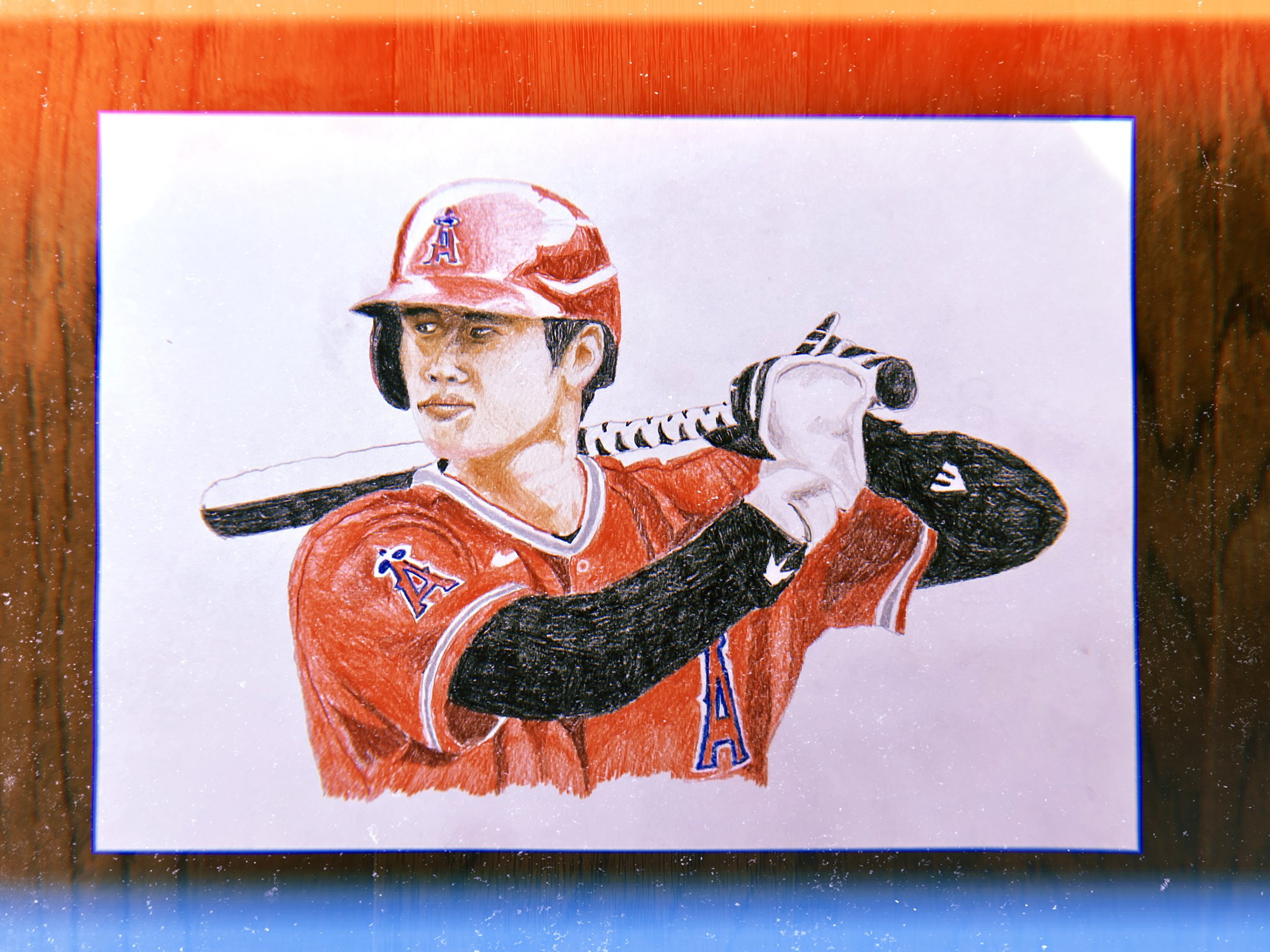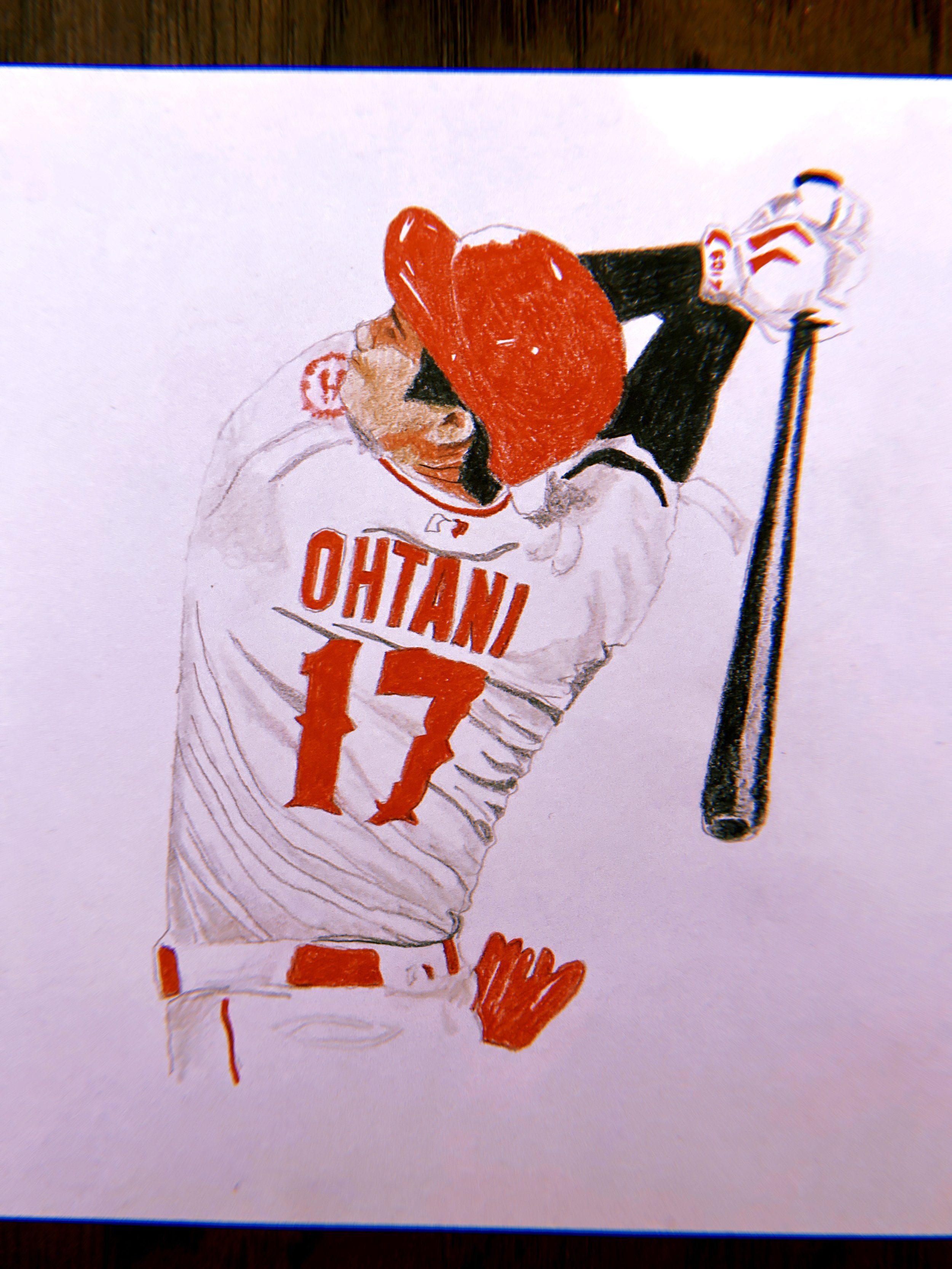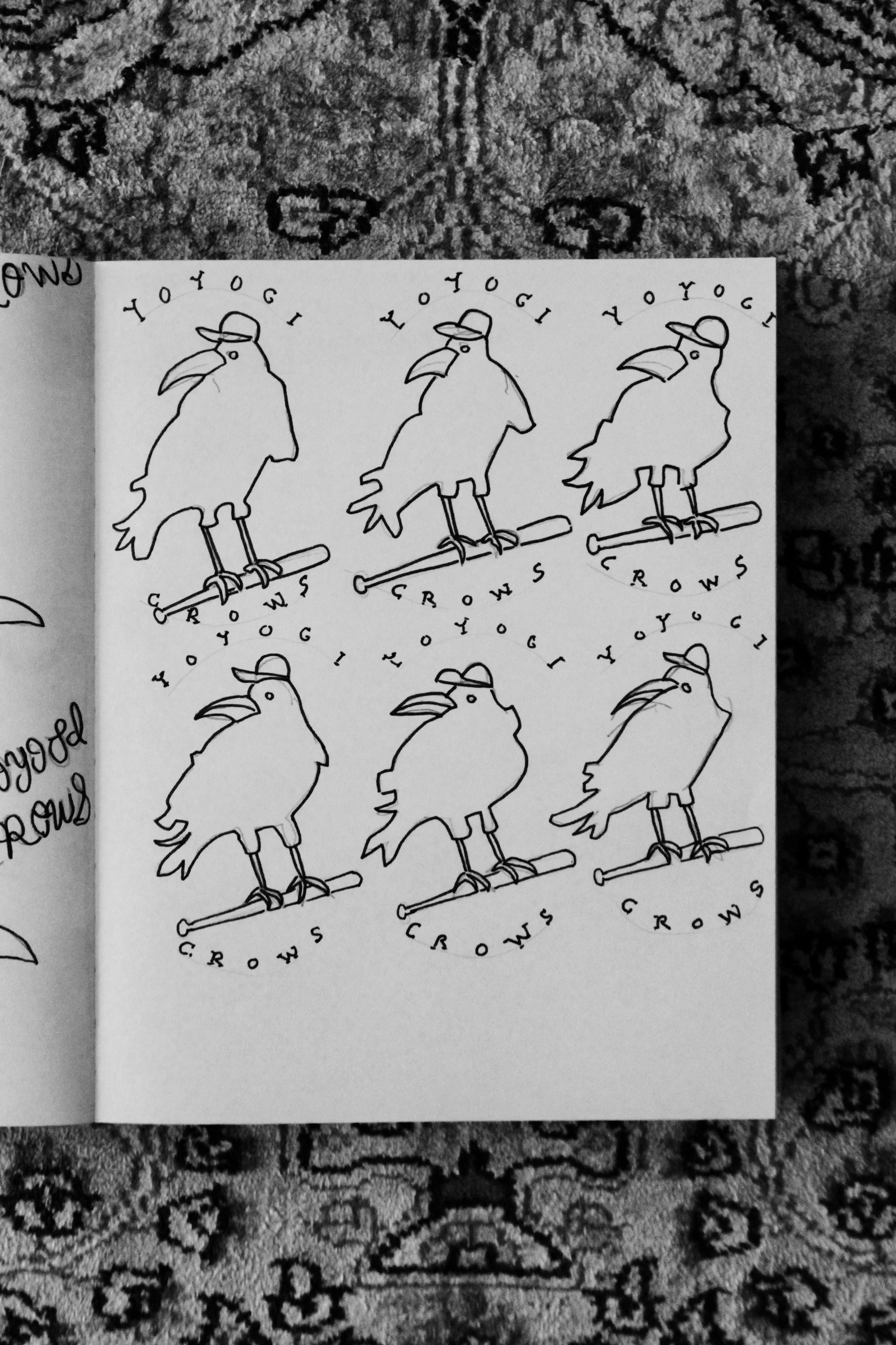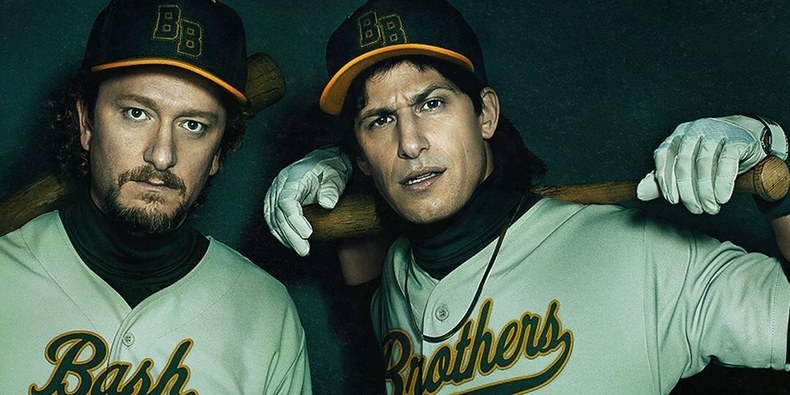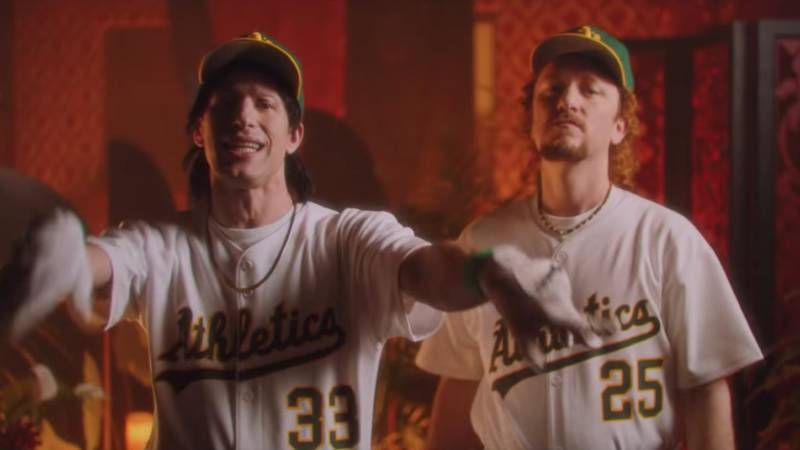Shohei Ohtani.
Baseball’s first two-way player in a century.
In a sport landscape filled with players who are apparently “different,” Ohtani is caps lock DIFFERENT. The HIM of “Hims.”
Call him G.O.A.T.-ani.
Call him two goats.
Split him in two and he’d be worth two individual MVPs.
Break down his atoms and particles and they’d all be worth their weight in gold.
Condense his elite aura into fumes and he’d solve the global energy crisis.
That he even exists is provocative and downright offensive. What are all these other ballplayers even doing out there? Why can’t anyone else be more like him?
Who else is using half of the game to throw shutouts, and the other half to hit two homeruns?
Exactly no body. Count ‘em up.
Of course he’s the unanimous choice for MVP, for a second time. What the hell happened those non-MVP seasons? Sports writers were doing crazy non-paying attention, absent minded, feel sorry for everyone else voting. Of course he’s the MVP.
His yearly MVP coronation isn’t just an end-season award. It’s a state of being.
If Ohtani is breathing air in the vicinity of a ballpark, he’s the guy.
Create a fancy jewel-encrusted award for the runners up, because it’s not a fair comparison. There are other great, cool and elite baseball players in the game. But Ohtani is something more.
He makes your hyperbole sound like humility.
No matter what flowery, new age sports metaphors and clever wordplay you can come up with, you can’t encapsulate truthfully what Ohtani is doing.
We can’t even crack a proper metaphor on what he’s doing. It’s like if Pat Mahomes was leading the NFL in touchdowns and sacks? Maybe it’s similar to Michael Jordan when he was scoring champ AND defensive player of the year? Something like that, except Jordan was just doing his job. Ohtani is doing TWO JOBS at all-time levels, all of the time. You dig?
In video games and little league, Ohtani’s are aplenty. It’s backyard whiffle ball fun to do it all.
But that’s not how the gatekeepers, legion of lawyers, doctors and gods of baseball work.
The institution of baseball forces you to make a choice: Hit or pitch.
You are given permission to play in only one half of the game.
The scouts and coaches eventually make the choice for you. They pay you a stack to do one or the other. There is no multiple choice option. They whisper about “protecting their investment” and “reality.”
Until Ohtani. He’s the all of the above trick question of sports.
When he first announced his major league intentions after playing in Japan, he flexed and fronted that he’d only play for a team that let him do both.
Cute, they’d say. Let’s humor him, they’d say.
Maybe we’ll let him pitch out of the bullpen in the spring training, and then use him as a hitter only once the games start.
Or maybe we’ll make him our starting pitcher, and then use him to pinch hit once every ten games so he feels validated. He’ll grow out of this phase, they’d say.
Ohtani didn’t accept such shenanigans.
He demanded to be a proper two-way player in a traditional sport that only knew one way for 150 years.
Except a dude named Babe Ruth. He did both. A sepia toned, crusty century ago.
Then teams had to debate. Wait, is Shohei a better pitcher or hitter? What should we sign him as? What should we prioritize him as? How does he fit into our system?
His prodigious double talent forced the game of baseball to bend brains and inflexible “it’s always been that way” Hawaiian shirt wearing “baseball people” to learn all sorts of mental yoga positions. (sorry, not a pretty image)
Ohtani forced America’s longest running, most traditional sport to CHANGE.
When he touched down, he did it all. And people didn’t buy in. It won’t last—they said. What a lucky start—they said.
That was 2018. But the thing is, that lucky start has been going on for five years. A couple of MVPs later, we’re living in an alternate reality, where we’re being treated to regular shows of no one who is alive has ever seen incidents on the baseball field.
None of this was supposed to happen. The powers that be should have never allowed this. Players don’t get a choice. For a century, baseball ran the show. They told you how it was.
Now it flipped and Sho is The Show.
Baseball is a team game, but unique in that it puts individuals squarely in the spotlight. Ohtani is twisting all those spotlights to look at him, and casting a shadow over everyone else. And he’s doing it with no disrespect. In an era where players are running around and screaming about their personal narratives and how they are the greatest ever, Shohei Ohtani has a legit claim to all of that and he’s just sitting on his sofa high-fiving his dog.
Hashtag Wholesome.
Hashtag Whole Game.
Now we’ve all had some time to absorb what’s going on, but we still don’t know how to talk about. We don’t know how to properly hype what Ohtani is doing. His dramatic feats empty our heads and steal the words from our mouths.
It’s okay. Maybe we’ll be able to contextualize what’s going on later.
For now, just keep your eyes open and enjoy the show.
It’s historic goat level things that make sports real time historic drama like no others.
So let’s all mint nicknames, get hyped and enjoy the nightly goosebumps courtesy of Ohtani-san. Enjoy the ride as he smashes multiple balls into the cheap seats and dons his samurai helmet.
Baseball has never dreamed wilder or crazier than it’s doing with the career display the slugger slash hurler from the Rising Sun is putting on. These are competitive hallucinations made tangible. We’re living within the borders of a rare baseball card, surrounded by living, breathing golden baseball monuments.
And so we ride on, accelerating to an uncharted region on the sports map. It’s like learning that the world is round. And spinning like a baseball erupting from the hand or bat of Mr. Shohei Ohtani.
